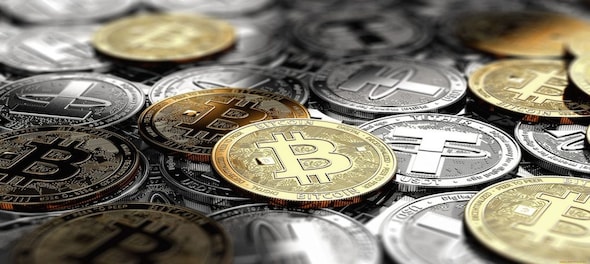
As of July 2022, the world's unbanked population stood at 1.4 billion people, according to data from the world bank. These individuals either have no access to the banking system or choose not to participate. This disparity in financial inclusion results in the rich getting richer and the poor getting poorer.
Those who have access to the services of a bank have access to loans, credit cards, mortgages and more, leaving the unbanked heavily disadvantaged. Fortunately, cryptocurrency offers this section of the population a viable alternative to traditional banking and brings them into the financial fold.
Let's look at how digital assets can help the world's unbanked population.
Less documentation:
The poorest around the world have no proper documentation. They are either missing a birth certificate, do not have an Aadhaar card, never received an education certificate or applied for a passport. Without these documents, getting a bank account is next to impossible.
On the other hand, cryptocurrencies need no documentation. All that's required is a smartphone, the internet and a small learning curve. There are also plenty of online videos to guide people and help them set up their wallets and start transacting.
Accessibility: The cities are filled with bank branches, but the remote areas are often neglected. This is not the fault of the banks; it's just capitalism at work. Fortunately, cryptocurrencies need no bank branches; they only require a smartphone and the internet. Moreover, with smartphones becoming cheaper and internet connectivity spreading in leaps and bounds, cryptocurrencies have the potential to reach every nook and corner of the world.
No minimum balance: What might sound like a stretch for city dwellers is, in fact, a big problem for the poor of the country. They cannot maintain a minimum balance. Today, most savings accounts require a minimum balance of Rs 1,000, which goes up to Rs 25,000 for some accounts.
Most of the unbanked population do not have that kind of money or cannot afford to keep it just lying in the account. Plus, fines are also threatened if the account balance dips below the minimum requirement. All this chases people away from traditional banking. Crypto needs no minimum balance, you don't even need to use the wallet regularly to keep it activated.
Takes out human bias: The banking system is run by people. This allows room for intolerance and prejudice. For instance, there is always a chance of someone from a certain race or caste being denied banking services. However, with algorithms running the show, crypto doesn't care about your colour, caste, religion or creed; you are a number among numbers and will be treated that way. Indiscriminately.
What can the unbanked do with cryptocurrencies?
As mentioned earlier, anyone can create a crypto wallet. After setting up the wallet, one can send and receive payments in crypto. This allows individuals to transact without a bank account. They can quickly receive remittances from their relatives abroad without any paperwork or formalities. They can also store the crypto in their wallet and watch it grow over time. This allows them to beat the devaluing effect of inflation. It is much better than keeping physical cash at home, and in some cases, it also trumps money tucked away in a fixed deposit.
Conclusion
Right now, the hype around cryptocurrency is tied to incredible returns and investors making tons of money. However, when the buzz fizzles down, cryptos will stand out because they are quick, affordable and all-inclusive means of transacting. They cut out banks and intermediaries from the financial sector and make it easier for people to store, send and receive value.
Also Read: US market regulator says cryptos are not ‘laundromat tokens’ as Fed Chair too calls for regulation
Check out our in-depth Market Coverage, Business News & get real-time Stock Market Updates on CNBC-TV18. Also, Watch our channels CNBC-TV18, CNBC Awaaz and CNBC Bajar Live on-the-go!


2024 Lok Sabha Elections | Why Kerala is in focus as the second phase begins to vote
Apr 26, 2024 9:33 AM
Bengaluru Rural Lok Sabha election: Over 8% voter turnout recorded by 9 am
Apr 26, 2024 9:11 AM

